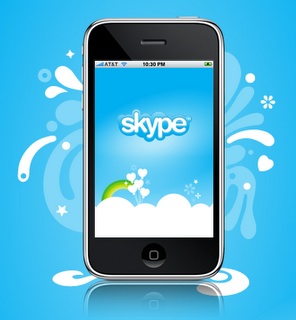 Does Skype have an interest in mobile health? Yes -- well -- sort of. The voice and video chat company recently announced that it had joined Verizon as a sponsor of the upcoming FNIH mHealth Summit in Washington DC this November. Skype's sponsorship raised eyebrows because the company has not previously stated a specific interest in mobile health. MobiHealthNews interviewed Skype's Director of Marketing & Operations for the Mobile Business Unit, Linda Summers to better understand Skype's take on its mobile health opportunity.
Does Skype have an interest in mobile health? Yes -- well -- sort of. The voice and video chat company recently announced that it had joined Verizon as a sponsor of the upcoming FNIH mHealth Summit in Washington DC this November. Skype's sponsorship raised eyebrows because the company has not previously stated a specific interest in mobile health. MobiHealthNews interviewed Skype's Director of Marketing & Operations for the Mobile Business Unit, Linda Summers to better understand Skype's take on its mobile health opportunity.
"The way we got involved with the mHealth Summit was through our partner Verizon," Summers told MobiHealthNews. Does Skype have a specific interest in mobile health? Not specifically, Summers said.
"We know that Skype is being used by hospitals and healthcare specialists as well as patients looking to connect to loved ones around the world," Summers explained. "Skype's use cases come from its users and those experiences and stories shape our story as opposed to us specifically directing activities."
That said, just last month Skype announced on its corporate blog that it had partnered with a hospital in the US for the first time:
"Last December, Skype began working with the UCSF Children’s Hospital and UCSF Medical center, in an effort to connect hospital patients with loved ones who are unable to make in-person visits. This partnership, which marks the first time Skype has partnered with a hospital in the US, has made Skype video calling available to all patients in the hospital," the blog entry read. "Video calling in the hospital has removed both geographical, and in this case, physical barriers by allowing patients who can’t leave the hospital to have face-to-face conversations. Lila Param, director of pediatric services at UCSF Children’s Hospital, noted how Skype video calling has helped the healing process among many patients by eliminating a sense of isolation that patients sometimes feel. By having access to Skype enabled laptops, patients are able to reach out and talk to family and friends, whenever they are feeling lonely."
Summers said that Skype is also being used in Australia at a neurological care facility as well as in Zanzibar for remote consultations.
"There are new opportunities emerging for Skype as there are many examples of how people are using Skype to positively add value to healthcare related activities," Summers said. "As we bring Skype to more mobile users, suddenly users are able to reach a greater number of people in markets where broadband adoption and desktop PC use is low. The internet is only available through mobiles in these markets and the opportunity exists there for Skype to be used in healthcare contexts."
UPDATE: Important to note that Summers said that concerns over HIPAA in the US and similar privacy/regulatory issues in other markets were the key reason that Skype is hesitant about healthcare.














